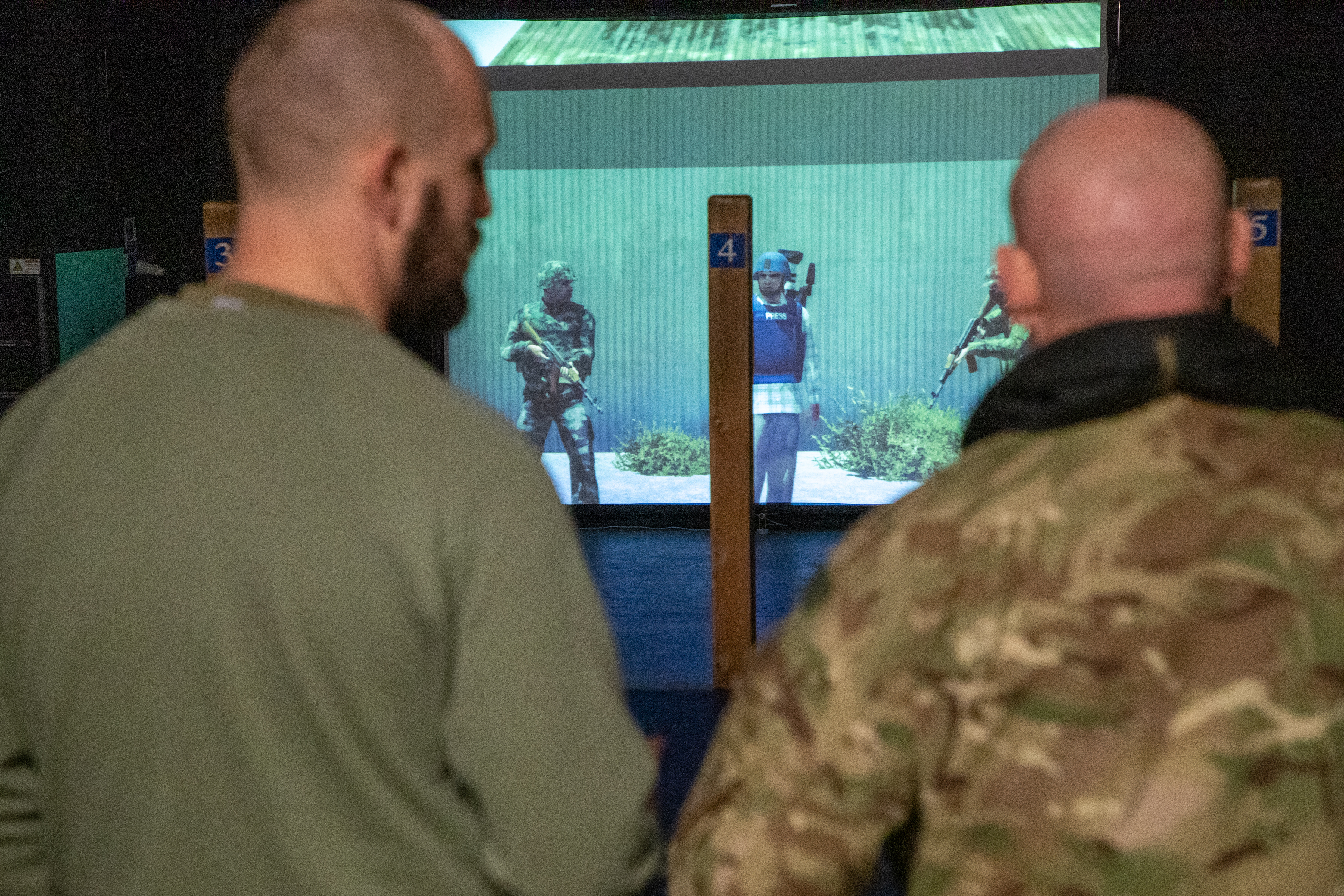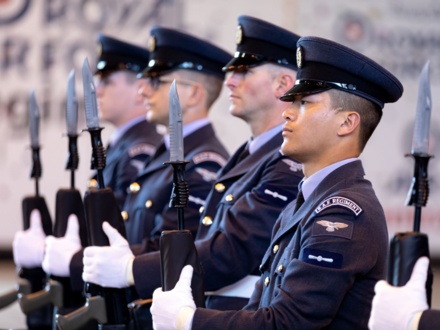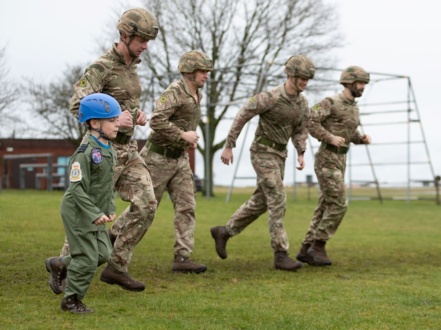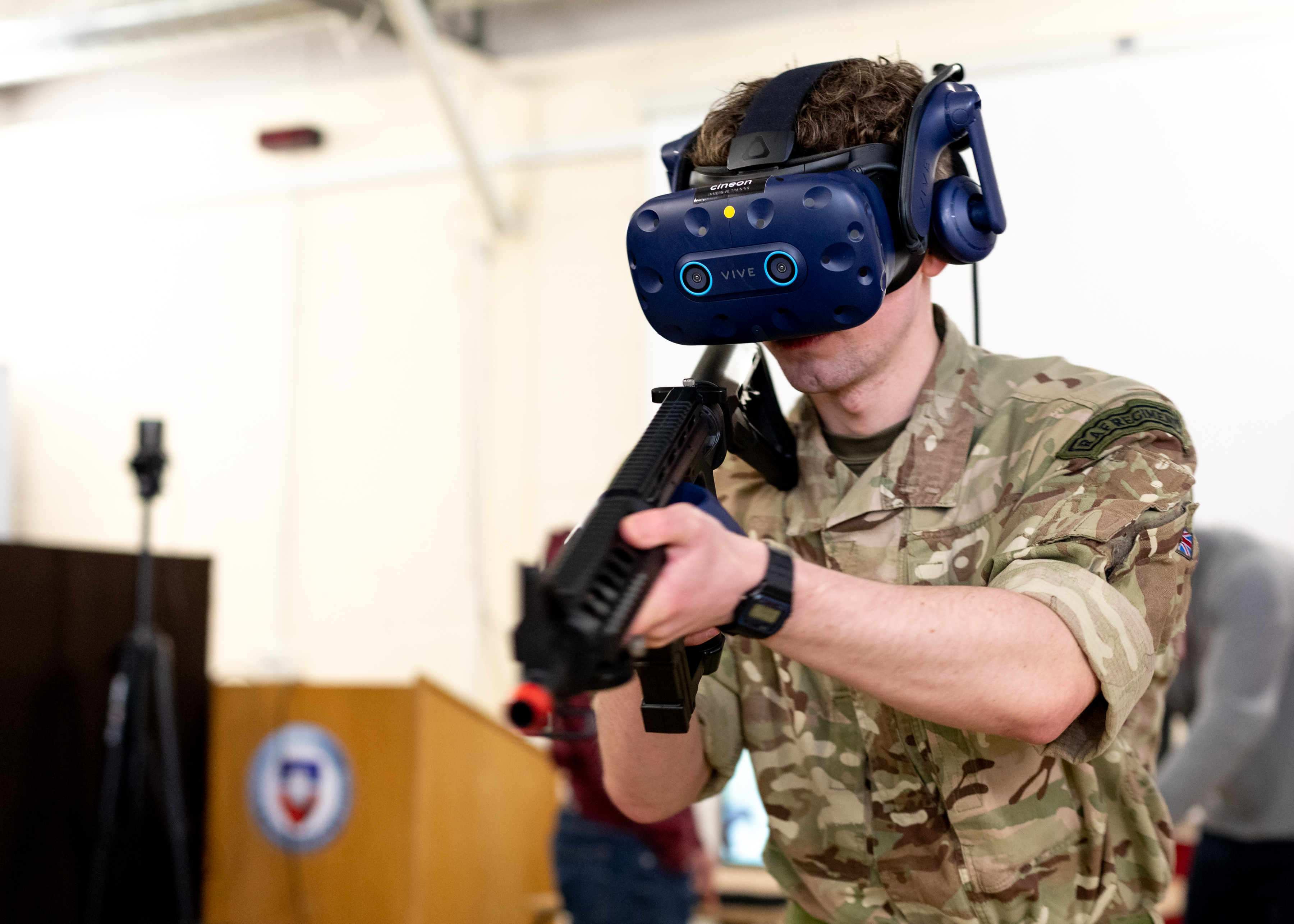
Trials have taken place in conjunction with the Defence Science and Technology Laboratories and the University of Exeter to research the delivery of judgemental training and the validity of using virtual reality for improving judgemental skills.
36 volunteers from the Queen’s Colour Squadron attended the RAF Force Protection Centre to take part in the trials providing valuable input into comparing the benefits of virtual reality for training compared to the existing simulated training mechanisms.
"As Programme Director for Force Protection Experimentation (FPX), I am delighted that the RAF Force Protection Centre has partnered with Defence Science and Technology Laboratories, Exeter University, and industry on this project. In close-combat, our Force Protection operators are required to make split-second decisions. When operating around complex airfields, packed with people and high value air systems, a great deal of discrimination must be applied in deciding when and how to operate our weapon systems. Failure to make the correct decision, in an instant, could inadvertently cost the lives of those we are entrusted to protect. More broadly, it could result in the failure of the Air mission."
Wing Commander Mitchell
Officer Commanding RAF Force Protection Centre
.jpg)
The study was executed in 3 phases, allowing the trial to compare the virtual reality judgemental training against existing training options such as Close Quarter Battle Training serials and the Dismounted Close-Combat Trainer (DCCT); a computer-based synthetic combat marksmanship trainer that uses realistic weapons without the inherent danger of live ammunition. It does not replace training with live ammunition, but its use makes live fire marksmanship and tactical training more efficient by introducing the student at a higher level of competence.
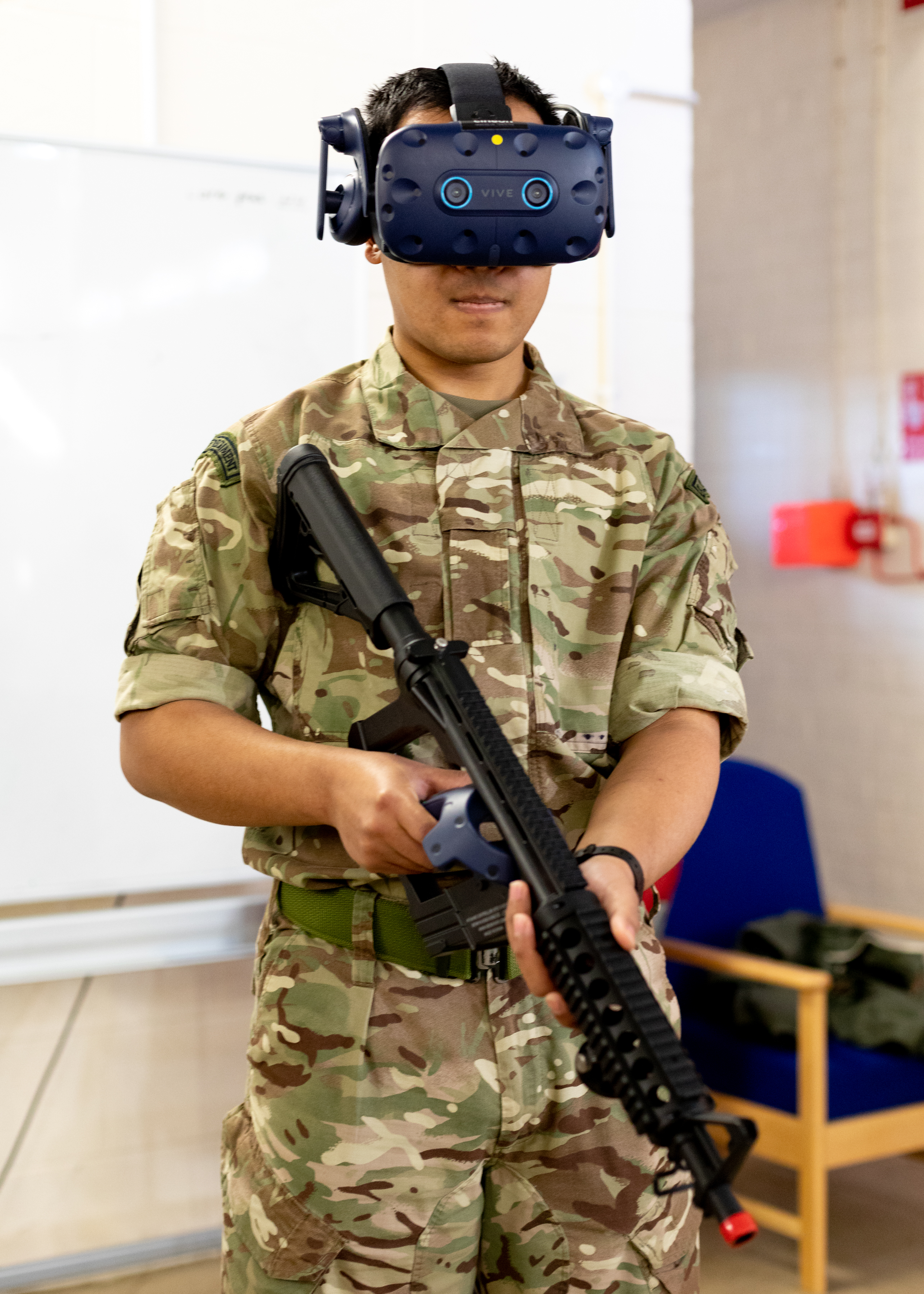
The unique character of the Complex Air Ground Environment challenges the traditional training mechanisms structured on ground centric methods and these trials will provide essential research on how to improve tactical decision making. The Ministry of Defence have expressed interest in exploring the use of immersive technologies, like virtual reality, to enhance human skills training, and this work will inform future decision making about the suitability of virtual reality in judgemental training.
"FPX is always looking for opportunities to leverage technology that will improve our ability to train and operate at the highest level. This particular project seeks to determine whether virtual reality offers an opportunity for battle-winning advantage, through the judgmental combat marksmanship training we provide to our operators."
Wing Commander Mitchell
Officer Commanding RAF Force Protection Centre
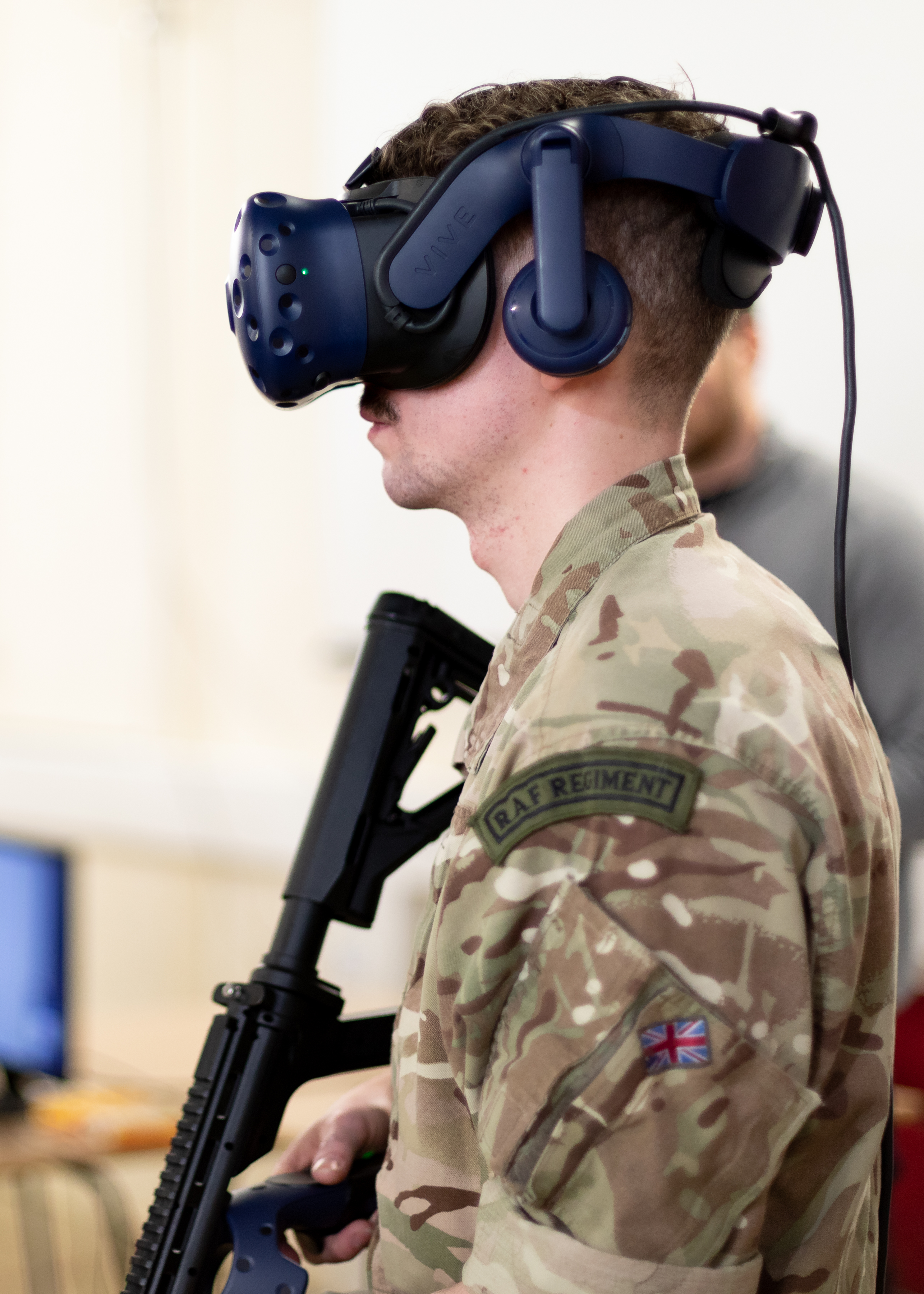
"The virtual reality system offers an opportunity for personnel to be immersed in synthetic training in a way that just was not possible with the DCCT trainer. The speed at which scenarios can be set up is extremely advantageous for busy Force Elements to capitalise on short-notice training windows, and the fact that you are moving around makes it much easier to understand your capabilities, limitations and the risks associated with operating in the CQB environment. With additional investment and refinement, the virtual reality system will be a tremendous addition to complement live training to ensure that our personnel are as prepared as they can be for operations."
SAC Newman
Trial participant
